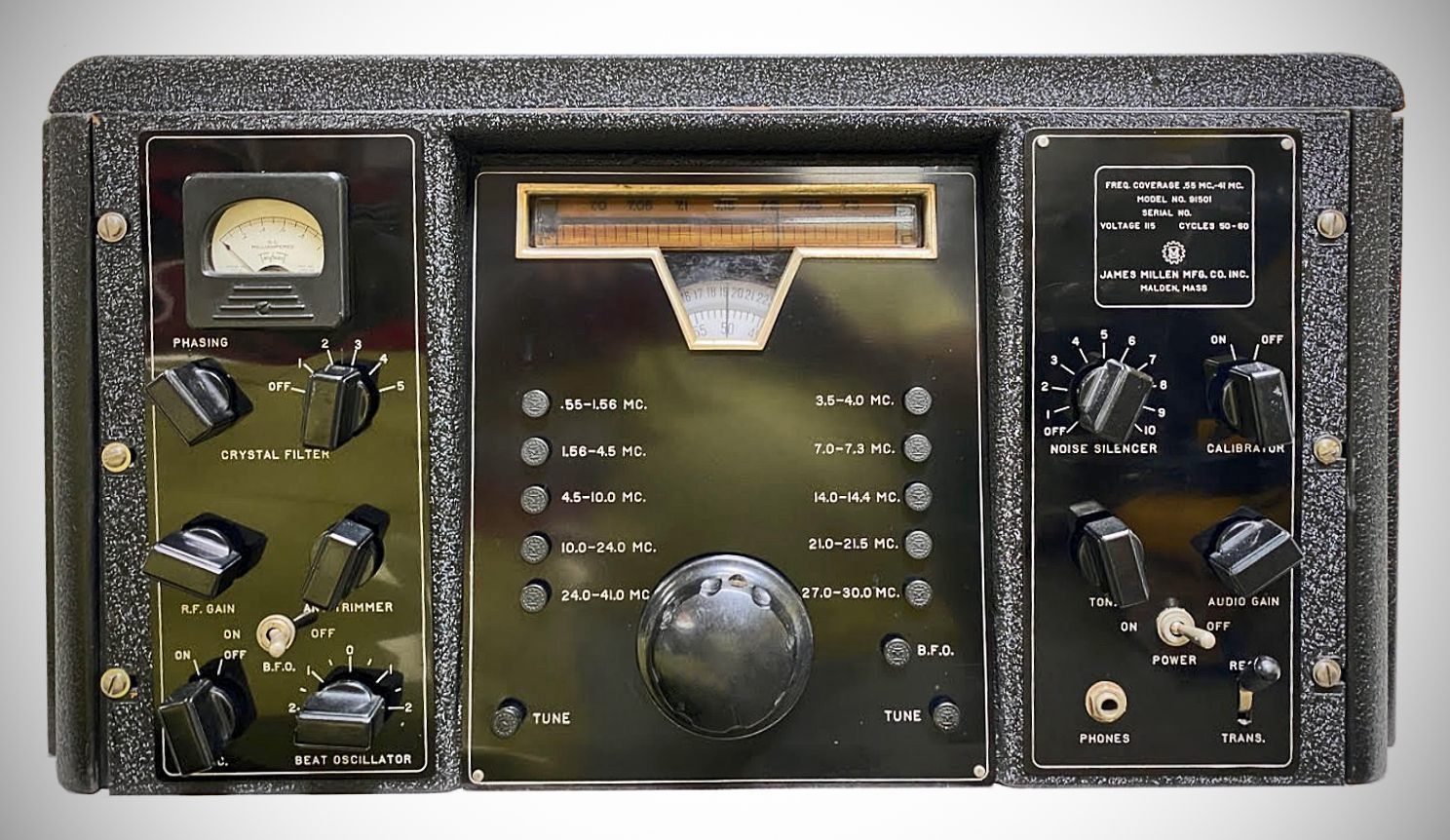Note
Millen catalog "Communications Receivers and Transmitters" 1947-1948
Described as a "semi custom built" receiver, the 91501 (DFP-501) was developed as a prototype but never sold. Catalog text also notes that a receiver of such quality could only be produced by "skilled craftsmen working under laboratory rather than production line conditions,” and noted the unit would be available in limited quantities.
In additional to the sloping middle section of the front panel, one of the most unusual features of the receiver is what Millen called "Micro-touch fingertip control power band shifting," and "Micro-touch fingertip control motor tuning." These features permitted the operator to change bands and slew the frequency up or down just by pressing buttons on the front panel.
The front panel is built on a standard 19 inch rack panel, 10.5 inches high.
Complete with matching speaker in separate cabinet.
Other features include:
–Coverage from 550 kHz to 41.5 MHz
–Separate band spread ranges from 80 40, 20, 15, 10, and 11 meters
–Broadcast band in one range
–Sensitivity of 1µV or better over the entire range
–Selectivity from 150 Hz to 12 kHz in five steps
–Double conversion, with 3 high gain IF amplifiers
–Two 6AK5 tuned RF amplifier stages
–"Good" signal to noise ratio
–Lamb type 3 stage adjustable noise filter
–AVC on CW and AM
–500 kHz crystal calibrator
–Same tuning control used for general coverage and band spread
–Separate AF and RF gain controls
–Input to audio amplifier available in rear panel
–Can be used with headphones alone, no speaker required
–Tone control
–High fidelity 8 watt push-pull audio output stage
–8Ω balanced output available for recordings
–600Ω balanced output
–Output for use with a panadaptor
–Crystal phasing control
–Oscillator compensated for frequency drift
–Antenna trimmer on front panel
–Separate AVC amplifier
Power: 115 VAC, 50/60 Hz, 175 watts
Tubes: (2) 6AK5, (2) 6L7, (3) 6SJ7, (2) 6K8, (4) 6SK7, (1) 6H6, (1) 6J5, (2) 6V6, (1) 5U4, (1) VR-150, (2) 1N34 diodes
